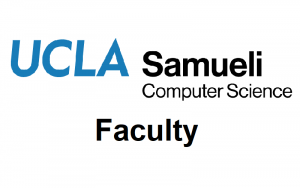
At the end of the 2020-2021 school year, the UCLA Computer Science Department celebrates another year of research excellence and achievements by featuring eleven Ph.D. graduates and Postdoctoral Researchers who are about to begin a new journey of their lives as professors at top-notch universities across the globe. These young researchers represent the highest caliber of excellence in research and scholarship at the CS department at UCLA.
Yuan Cao—Postdoc at UCLA, advised by Professor Quanquan Gu—will join the University of Hong Kong. Yuan’s research is focused on the theory of deep learning and high-dimensional statistics.
Jinghui Chen, advised by Professor Quanquan Gu, will join Penn State University. Jinghui’s research is focused on adversarial machine learning and optimization for deep learning. The title of his dissertation is “Evaluating and Understanding Adversarial Robustness in Deep Learning.”
Steven Holtzen, advised by Professors Todd Millstein and Guy Van den Broeck, will be joining Northeastern University. Steven’s dissertation, “Exploiting Program Structure for Scaling Probabilistic Programming,” develops techniques to address the computational challenge of probabilistic programming languages, providing orders-of-magnitude speedups on important classes of programs.
Aayush Jain, advised by Professor Amit Sahai, will be joining Carnegie Mellon University. His dissertation, “Indistinguishability Obfuscation from Well-Founded Assumptions,” provides the first construction of an important cryptographic primitive, called Indistinguishability Obfuscation, that only depends on standard assumptions.
Erin Molloy—Postdoc at UCLA, advised by Professor Sriram Sankararaman—will join the University of Maryland. Erin develops scalable statistical algorithms for analyzing genomic datasets, with applications in human population genetics. Admixture, the process of interbreeding between previously distinct populations, is a pervasive force in evolution. Erin is working on the challenging problem of inferring network models of human evolution in the presence of admixture.
Antonio Vergari—Postdoc at UCLA, advised by Professor Guy Van den Broeck—will join the University of Edinburgh. Antonio’s research focuses on learning models from data that support decision-making in the real world by efficiently and reliably dealing with uncertainty.
Lingxiao Wang, advised by Professor Quanquan Gu, will join Toyota Technological Institute at Chicago. Lingxiao’s research is focused on secured and privacy-preserving machine learning. The title of his dissertation is “Towards Better Privacy and Utility Trade-offs in Privacy-Preserving Machine Learning.”
April Wei—Postdoc at UCLA, advised by Professor Sriram Sankararaman—will join Cornell University. April develops computational and statistical methods for problems in human population genetics. She is working on understanding the contribution of archaic ancestry to human phenotypes and to infer evolutionary processes from genomic sequence data.
Pan Xu, advised by Professor Quanquan Gu, will join Duke University after a year of Postdoc at Caltech. Pan’s research is focused on sample-efficient machine learning algorithms, including nonconvex optimization, reinforcement learning, and Monte Carlo methods. The title of his dissertation is “Sample-efficient Nonconvex Optimization Algorithms in Machine Learning and Reinforcement Learning.”
Tianyi Zhang, advised by Professor Miryung Kim, will join Purdue University. Tianyi’s dissertation title is “Leveraging Program Commonalities and Variations for Systematic Software Development and Maintenance.” Tianyi’s Ph.D. research focused on leveraging inherent repetitiveness and redundancies embedded in large software systems to help programmers inspect, test, and assess code fragments during software reuse tasks.
Peipei Zhou, advised by Professor Jason Cong, will join the University of Pittsburgh. Peipei’s dissertation is titled “Modeling and Optimization for Customized Computing: Performance, Energy and Cost Perspective.” This dissertation investigates design target, modeling, and optimization for field-programmable gate array (FPGA) customized computing at chip-level, node-level, and cluster/datacenter-level. It leads to significant acceleration and performance/energy improvement for a number of applications in deep learning and precision medicine.
